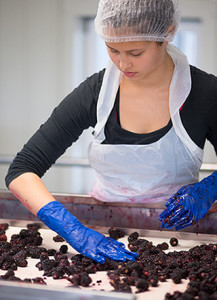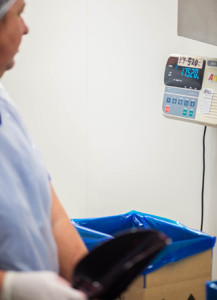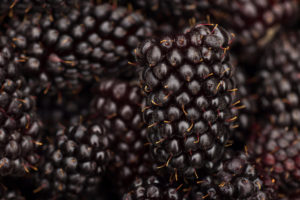Food Safety
 Management
Management
We are committed to ensuring our food safety and quality policies and procedures continue to meet and exceed the industry requirements and our many customer requirements.
To do so we invest in our people by developing and training them in relevant and up to date food safety practices and quality principles. We update our documented systems annually to ensure all systems are up to date with industry initiatives and legislative requirements.
Boysenberries New Zealand takes food safety very seriously and will continually strive to improve our systems to ensure our boysenberries are consistently of high quality, are safe and healthy and delivered on time to meet customer requirements.
Quality Food Safety Programme
Boysenberries New Zealand Limited has a registered National Programme 2 and has been assessed and determined to comply with the requirements of Food Safety System Certification (FSSC) 22000.
We have comprehensive Quality Food Safety Manual to assist growers, packhouses, cold stores and transport operators. This manual is reviewed annually and updated as required pre harvest. The manual is a working document that is based on HACCP principles.
All growers and packhouses comply with GLOBALG.A.P. and are audited annually by a third party. All packhouses operate and comply with FSSC requirements. All packhouse operations undergo an intensive internal audit programme during the harvest season and an external FSSC audit during each processing period.
Certifications are available on request.

Traceability
All finished products have GS1 compliant barcode labels containing the following information embedded into the barcode and also human readable;
- grower number or batch number
- pack date
- sequential unit number
Traceability begins in the field with all blocks and rows being clearly identified by row number.
All of our products can be traced back through the computerised inventory system from finished product barcode information all the way back to the property rows. To do this we need to have the grower number, line code and unit number.
Agrichemical Use
 The New Zealand boysenberry industry’s fundamental philosophy is to minimise pesticide use wherever possible and to use the most environmentally acceptable materials available. At the same time we recognise the need for an economically viable crop.
The New Zealand boysenberry industry’s fundamental philosophy is to minimise pesticide use wherever possible and to use the most environmentally acceptable materials available. At the same time we recognise the need for an economically viable crop.
Our goal for this compromise is to produce products that will fully comply with every country’s pesticide regulations, by using pest and disease control systems and monitoring procedures developed over the last 20 years.
Ongoing educational programmes for growers, and supporting research programmes promote the use of integrated pest management approaches at all times. Innovative, non-chemical approaches are used wherever possible. As such, pesticide use has been dramatically reduced in recent years.
 Spray Programme, Diaries, Sampling and OMAR’s
Spray Programme, Diaries, Sampling and OMAR’s
Throughout the growing season growers actively monitor their crops to check for evidence of pest and disease. If preventative measures are required the growers then follow an annually approved spray programme as distributed by NZ Boysenberry Council.
Accurate records of all sprays applied to the crop are kept in an electronic format. Each grower spray diary is reviewed for compliance against the approved industry programme, with holding periods and market access requirements. From here the sampling and testing programme is determined. Growers also provide samples of fruit for testing. A retention sample library is maintained. Samples are sent for analysis to an independent third party laboratory for analysis.
Environmental
Boysenberries New Zealand growers as custodians of the land, don’t take the unspoilt environment for granted and have incorporated rigorous environment standards into their daily practices.
Non GMO
The boysenberries produced in New Zealand are from conventionally bred varieties that have been carefully selected using traditional breeding techniques. Boysenberries New Zealand can confidently assert that its boysenberries do not come from any varieties that have been genetically modified.
